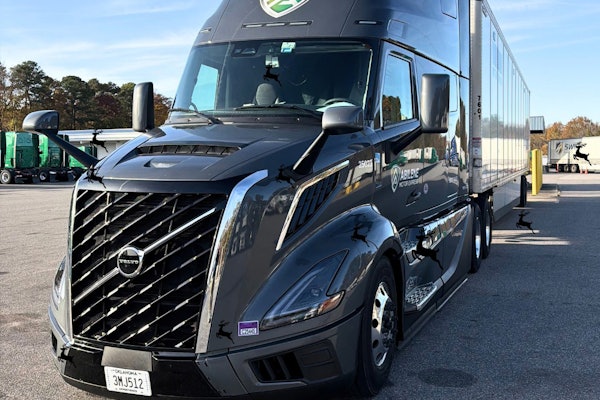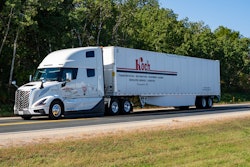Fleets must be careful not to agree to contract stipulations that could leave them open to liability in the event of an accident, negligence or financial problem experienced by another party, a transportation lawyer warned fleet executives.
Speaking at this week’s 2nd annual Randall-Reilly Trucking Fall Symposium in Phoenix, CCJ columnist Henry Seaton — in his presentation “Chicken Little’s View of the Clear Blue Sky: 12 Dark Clouds on the Horizon” — alerted carriers to be on the lookout for 12 potential legal loopholes in contracts that could leave them without recourse.
Vicarious liability/negligent entrustment. Carriers could be held liable for the problems, acts or omissions of a third-party subcontractor. Carriers should limit risk by not assuming liability and keeping their name off the bill of lading.
“Arising out of” indemnity and “additional insured” language in contracts. These draconian contract provisions emanate from shipper/broker concerns about vicarious liability.
Gaps in insurance coverage and agent liability. More motor carrier coverage is being bought on price, and policy terms aren’t negotiated. This leads to insurance loopholes such as commodity exclusion, moisture exemptions and security issues raised by unguarded lots and unlocked or unattended vehicles.
Cargo theft. Seaton says this is estimated to be a $60 billion enterprise annually. Carriers must establish what they had in their possession and when they were responsible for it.
Detention/spotted equipment issues. Hours-of-service rules have “changed the game,” Seaton said, affecting how drivers are paid and scheduled, and how customers are billed.
Chain of custody issues and importance of seals. Developing security initiatives by the Transportation Security Administration, Food and Drug Administration and the Customs-Trade Partnership Against Terrorism often are in conflict, and seal integrity policies must be set.
FMCSA proposal to deregulate freight forwarders and brokers. This would lead to problems with negligent entrustment, payment of freight charges and chain of custody, Seaton warned.
Offsets, or “He who has the gold rules.” Shippers and brokers may go against accepted claims practices, which then must be settled through mediation or arbitration.
Indemnity as an alternative to cargo claims procedure.
Worker’s compensation problems. Owner-operators are treated differently in each state, and worker’s compensation insurers resort to cut-through liability to make the prime contractor responsible.
Intermediaries and third-party recourse. Carriers must preserve recourse to shippers if brokers go out of business.
Bankruptcy preferences, or “how to keep what you get,” Seaton said. If a shipper or third party goes bankrupt, carriers want to ensure they still can keep payments already made to them. Critical vendor status often can help from having to return payments to debtors. 






